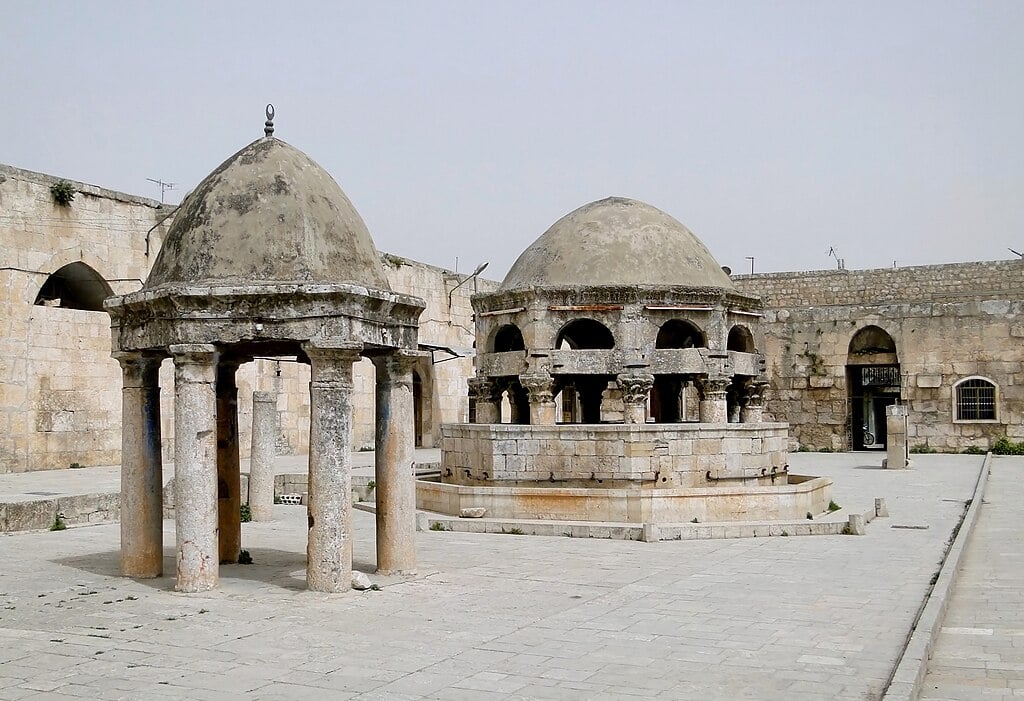

A contractor clearing rubble from a destroyed home in northern Syria has uncovered a 1,500-year-old underground tomb complex believed to date back to the Byzantine era.
The discovery took place in Maarat al-Numan, a town in Idlib province that sits along the historic route between Aleppo and Damascus.
The town, once a key battleground in Syria’s civil war, saw intense fighting and major displacement before the conflict eased with the fall of former President Bashar Assad in December. Assad’s forces had reclaimed the area in 2020, following years of rebel control.
Many homes in the area remain damaged, their roofs torn off or walls crumbling. As residents gradually return to rebuild, the contractor stumbled upon unusual stonework during a construction project.
A 1,500-year-old Byzantine tomb complex has been discovered in northern Syria’s #Idlib Province. The Byzantine Empire, which began in the 4th century AD, was a continuation of the Roman Empire with its capital in Constantinople — today’s #Istanbul. pic.twitter.com/eBJFKKeTfn
— Our World (@MeetOurWorld) June 9, 2025
Locals alerted the regional antiquities authority, which quickly sent a specialized team to assess and protect the site.
Photos from the location show a pit dug beside a war-damaged building. The pit opens into two underground chambers, each containing six stone tombs. A cross is carved into the top of one stone column, providing an early clue about the tomb’s Christian origins.
“Based on the presence of the cross and the pottery and glass pieces that were found, this tomb dates back to the Byzantine era,” said Hassan al-Ismail, director of antiquities in Idlib. This site adds to the rich archaeological landscape of the region.
Syria: unbelievable discovery from Maaret Numan (SE. Idlib).
A vast family hypogeum from the Byzantine era was discovered amidst reconstruction work following the war.
The 6 tombs preserved were still sealed. pic.twitter.com/pGGI0Tgl4M— QalaatM (@QalaatM) May 26, 2025
Al-Ismail said Idlib province holds about a third of Syria’s known historical sites. It “has a third of the monuments of Syria, containing 800 archaeological sites in addition to an ancient city,” he said.
The Byzantine Empire, which succeeded the Roman Empire in the 4th century AD, established its capital in Constantinople—modern-day Istanbul—and adopted Christianity as its state religion.
Many ancient Christian sites still dot the region, including abandoned hilltop settlements often referred to as the “Dead Cities.”
The discovery is meaningful for locals like Ghiath Sheikh Diab, who witnessed the Byzantine tomb being uncovered in Syria. He recalled that in the past, residents sometimes concealed such finds, fearing their properties would be confiscated if ruins were reported.
He said that he hopes the new government will offer fair compensation to property owners and support to those who lost their homes.
Another resident, Abed Jaafar, visited the site with his son to take photos. He remembered a time when foreign tourists came to Maarat al-Numan to see its ancient landmarks. “We need to take care of the antiquities and restore them and return them to the way they were before… and this will help to bring back the tourism and the economy.”
For a town still rebuilding from the scars of war, the discovery offers not only a glimpse into the past but a faint hope for the future.
